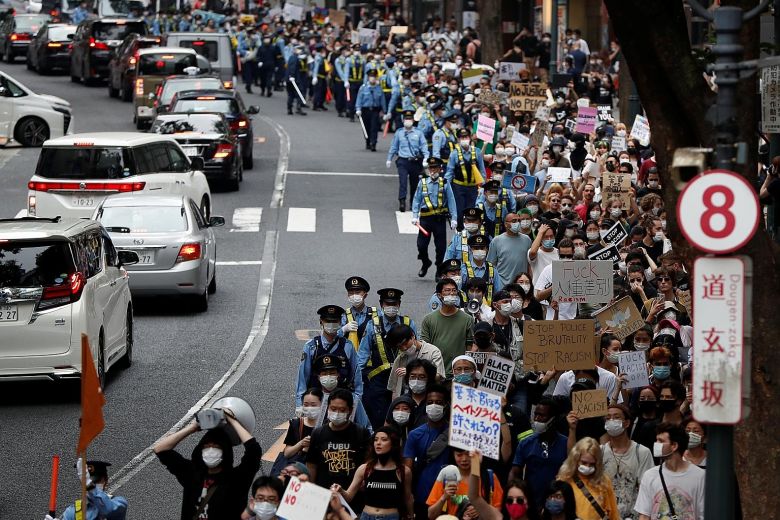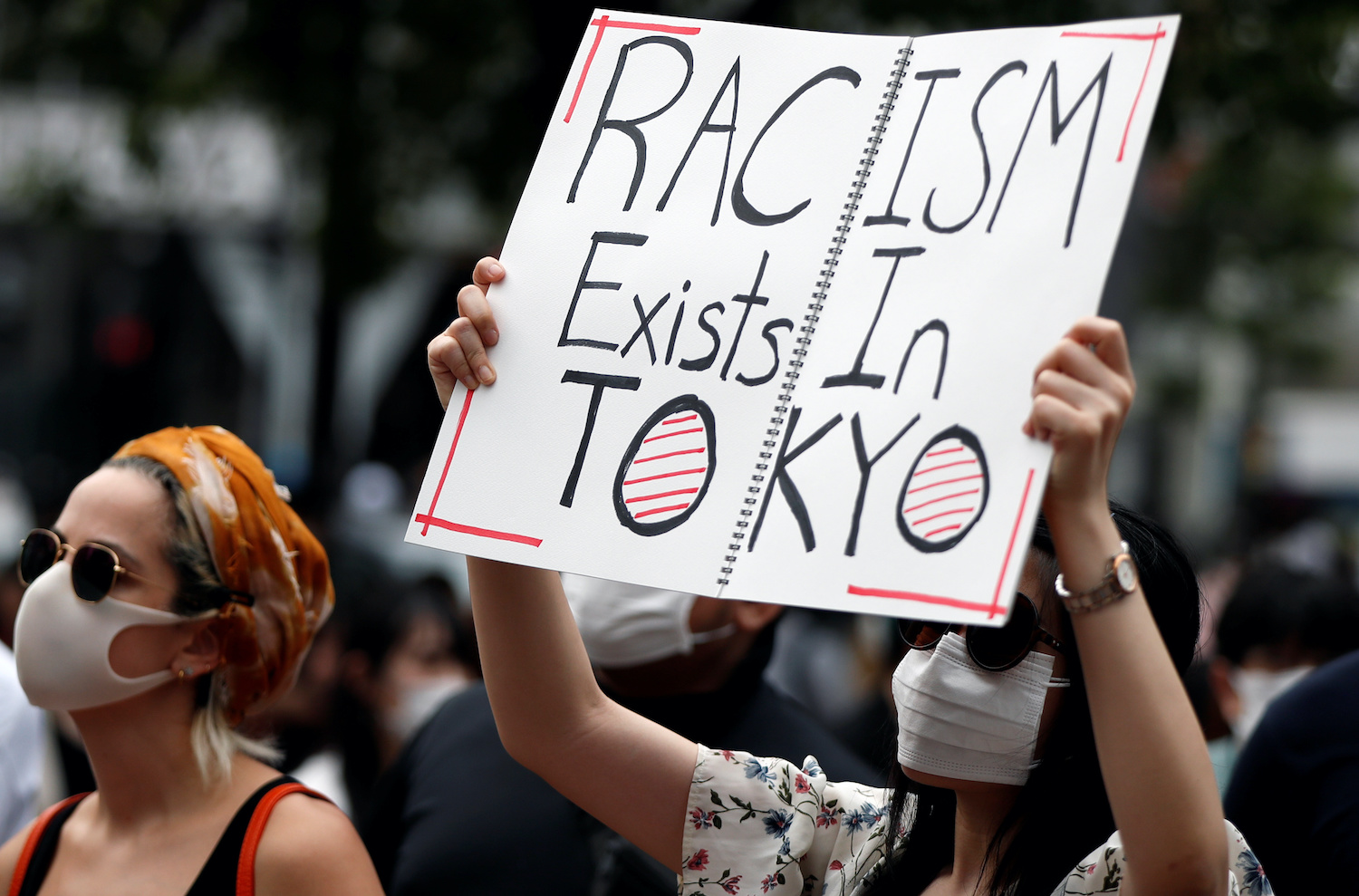TOKYO : Mitsuaki Shidara, standing in the crowd at Yoyogi Park, where the march began, said Japan has plenty of discrimination problems, but they’re overlooked.
Holding handmade signs that read Black Lives Matter, hundreds of people marched peacefully in Tokyo on Sunday, highlighting the outrage over the death of George Floyd even in a country often perceived as homogeneous and untouched by racial issues.

“We are all human first, but we are divided by nationality, gender, religion, skin color,” he said, wearing a pendant with the Japanese character for “love,” which he said was his favorite word.
“What’s happening in the U.S. shows racism is going on, even after 400 years,” said Shidara, who works for a food maker.
Mio Kosaka, another participant, said she had been a victim of discrimination at times while growing up in Beijing and Tokyo, because her parents were Japanese and Chinese.
“I think it is so wrong to discriminate based on appearance, and I wanted to relay the message that the American people have allies in Japan,” said Kosaka, who is studying design at a U.S. college.
“Some people don’t even know there is discrimination. Awareness needs to be raised,” she added.
Sunday’s turnout in Tokyo underlined how Japan has historically been reticent in dealing with diversity and is now trying to understand the Black Lives Matter movement and grapple with its own history of discrimination.
Such attitudes date back to the feudal era, with the Buraku underclass, and include more recently the offspring of marriages between Japanese and non-Japanese. The children are called hafu, derived from “half,” which critics resent as discriminatory.
Kyodo News agency reported that more than 1,000 people took part in Sunday’s march, which went from the park through the streets of Tokyo’s Shibuya area. The event’s organizers put the turnout at 3,500, while police did not give a crowd estimate.
Last week, a rally with similar themes in Tokyo drew several hundred people, and one in Osaka drew about 2,000. More Black Lives Matter gatherings are planned for this week in Fukuoka and Nagoya. The rallies reflect how more people of various backgrounds are becoming part of a rapidly globalizing Japan.
Although Japan is not reputed for police brutality, people have come forward recently, complaining that police have treated foreigners, especially black people, unfairly, stopping them for no reason, or have handled people with unneeded force.
“There is no country without racism, and I think the countries that don’t portray it are just because people are ignorant of the problem,” said Kazuna Yamamoto, a Japanese woman living in Chile who was taking part in Sunday’s rally in Tokyo.
“There is inequality because certain people are definitely profiting or benefiting from it,” she said.
Japanese tennis star Naomi Osaka, the world’s highest-paid female athlete, has also been vocal in raising awareness about racism in Japan and has gotten some flak on social media. Osaka, who has Haitian and Japanese parents, has expressed empathy for the Black Lives Matter movement, and posted a photo of Colin Kaepernick, the NFL player who knelt during the U.S. national anthem, in protest of racism and police brutality.
“I hate when random people say athletes shouldn’t get involved with politics and just entertain. Firstly, this is a human rights issue. Secondly, what gives you more right to speak than me? By that logic if you work at IKEA you are only allowed to talk about the GRÖNLID,” Osaka said in a recent tweet, referring to a type of sofa sold at the furniture chain.


![[商品価格に関しましては、リンクが作成された時点と現時点で情報が変更されている場合がございます。] [商品価格に関しましては、リンクが作成された時点と現時点で情報が変更されている場合がございます。]](https://hbb.afl.rakuten.co.jp/hgb/1bcca677.cb7ae344.1bcca678.8dabbf7f/?me_id=1278256&item_id=16240694&m=https%3A%2F%2Fthumbnail.image.rakuten.co.jp%2F%400_mall%2Frakutenkobo-ebooks%2Fcabinet%2F6834%2F2000005006834.jpg%3F_ex%3D80x80&pc=https%3A%2F%2Fthumbnail.image.rakuten.co.jp%2F%400_mall%2Frakutenkobo-ebooks%2Fcabinet%2F6834%2F2000005006834.jpg%3F_ex%3D240x240&s=240x240&t=picttext)


